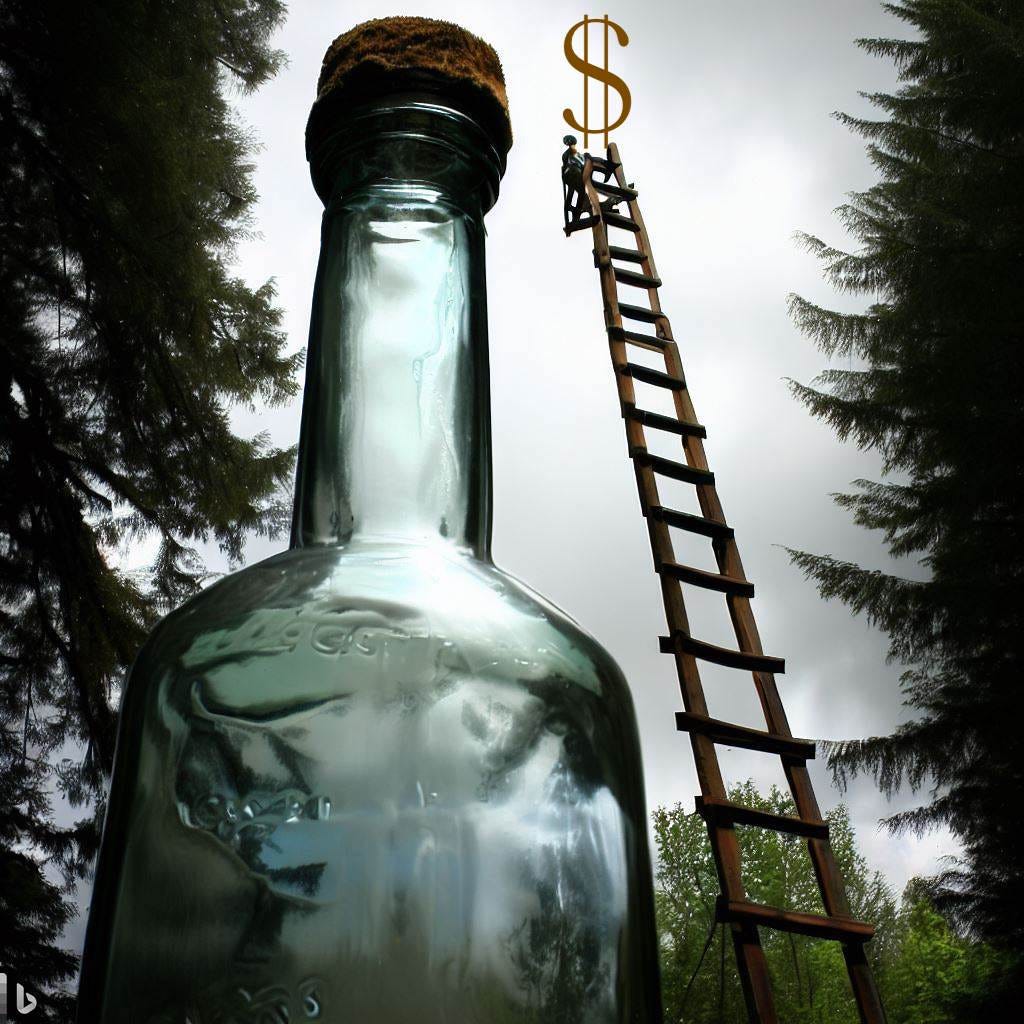The Fundamental Issues With States Controlling the Sale of Wine and Spirits
Oregon is ground zero for the "Get-States-Out-Of-Booze-Sales" movement
Those in the health “prevention” (meaning: those whose primary policy goal is to improve public health) have long claimed that increased taxes on alcohol reduce problematic drinking. Nowhere more than in the State of Oregon has this hypothesis been tested.
A “control state” for spirits sales, Oregon has a 113% markup on spirits—by far the highest markup of any monopoly control state in the country. Because a private wholesaler could never get away with this kind of markup, most of that 113% markup amounts to a tax. According to the Distilled Spirits Council of the United States (DISCUS), the effective Oregon Tax on spirits is $22.86 per gallon. The average monopoly control state tax is $13.69.
On top of this, Oregon places a $1.40 per case fee on all spirits. Moreover, in 2009, Oregon imposed a $0.50 “temporary” per bottle fee on spirits. That “temporary” fee has been extended every year since 2009 and was again extended this year through 2025. To again cite DISCUS:
“For a typical bottle of distilled spirits purchased in Oregon, nearly 70% of the retail cost already goes to pay a tax or fee of some kind.”
Given the long-held assumption that higher prices on alcohol result in reduced problematic and binge drinking, you would be correct in assuming that Oregon has one of the lowest rates of alcohol abuse and binge drinking.
And yet, in her 2023-25 budget proposal, Oregon Governor Tina Kotek declared that “The addiction crisis in Oregon has reached historic levels and resources must be prioritized to address the problem.” Moreover, a Substance Abuse and Mental Health Services Administration survey in 2021 ranked Oregon fifth nationwide in its rate of alcohol addiction among teens and adults.


